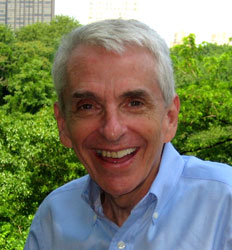World of Extreme Adaptation Explored at July 3 MBL Friday Evening Lecture

WOODS HOLE, MA–Confronted with limited oxygen or nutrient availability, numerous organisms demonstrate evolutionarily conserved responses, markedly slowing or arresting fundamental biological processes to achieve a near quiescent physiological state. Although this unique defense strategy that permits adaptation and survival by “turning down to the pilot light” has been extensively studied for more than a century, the mechanisms determining this extraordinary biological process remain largely unknown.

Physician-scientist Jonathan Gitlin will discuss how the exploration of extreme adaptation is offering new insights into vertebrate development and novel therapeutic approaches in human health and disease at the MBL (Marine Biological Laboratory) Friday Evening Lecture, Friday, July 3. His lecture, “Life Interrupted: Exploring the World of Extreme Adaptation,” will be held at 8:00 PM in the MBL’s Lillie Auditorium, 7 MBL Street, Woods Hole. The lecture, titled the Segal Lecture in memory of Sheldon J. Segal, former Chairman of the MBL Board of Trustees, is free and open to the public.
Gitlin is the MBL’s Director of Research Administration & Programs and Senior Scientist and Director of the MBL’s Eugene Bell Center. He received his M.D. from the University of Pittsburgh and completed his residency and fellowship training at Boston Children’s Hospital. Prior to joining the MBL he was on the faculty at Harvard Medical School, Washington University School of Medicine, and Vanderbilt University where he served as the James C. Overall Professor & Chair of the Department of Pediatrics.
Gitlin is interested in the interplay of the environment and the genome in early human development and his research utilizes zebrafish as a model for understanding human disease, environmental adaptation, and evolutionary biodiversity. He is the author of more than 150 papers and has received numerous professional honors including the E. Mead Johnson Award for Excellence in Pediatric Research, the Chancellor’s Hartwell Prize from Washington University, and an NIH Merit Award. He is a fellow of the AAAS and a member of the National Academy of Sciences Institute of Medicine.
The Friday Evening Lecture Series will continue throughout the summer at the MBL. The remaining lectures in the series are below. For more information, visit mbl.edu/FEL.
July 10
“The Invisible Influence of the Microbiome” – Jack Gilbert, University of Chicago
July 17
Forbes Lecture - "Electrical Signaling: Life in the Fast Lane" – William Catterall, University of Washington
July 24
Porter Lecture – “Development of External Genitalia: From Evolutionary Origins to Congenital Malformations” – Martin Cohn, University of Florida; Howard Hughes Medical Institute
July 31
E.B. Wilson History and Philosophy of Science Lecture – “Why We Should Trust Science: Perspectives from the History and Philosophy of Science” – Naomi Oreskes, Harvard University
August 7
Director’s Lecture – “Microbial Dark Matter” – Edward Rubin, Department of Energy Joint Genome Institute
August 14
Glassman Lecture – “Ecology in a Human Biosphere” – Erle Ellis, University of Maryland, Baltimore County
—###—
The Marine Biological Laboratory (MBL) is dedicated to scientific discovery and improving the human condition through research and education in biology, biomedicine, and environmental science. Founded in Woods Hole, Massachusetts, in 1888, the MBL is a private, nonprofit institution and an affiliate of the University of Chicago.